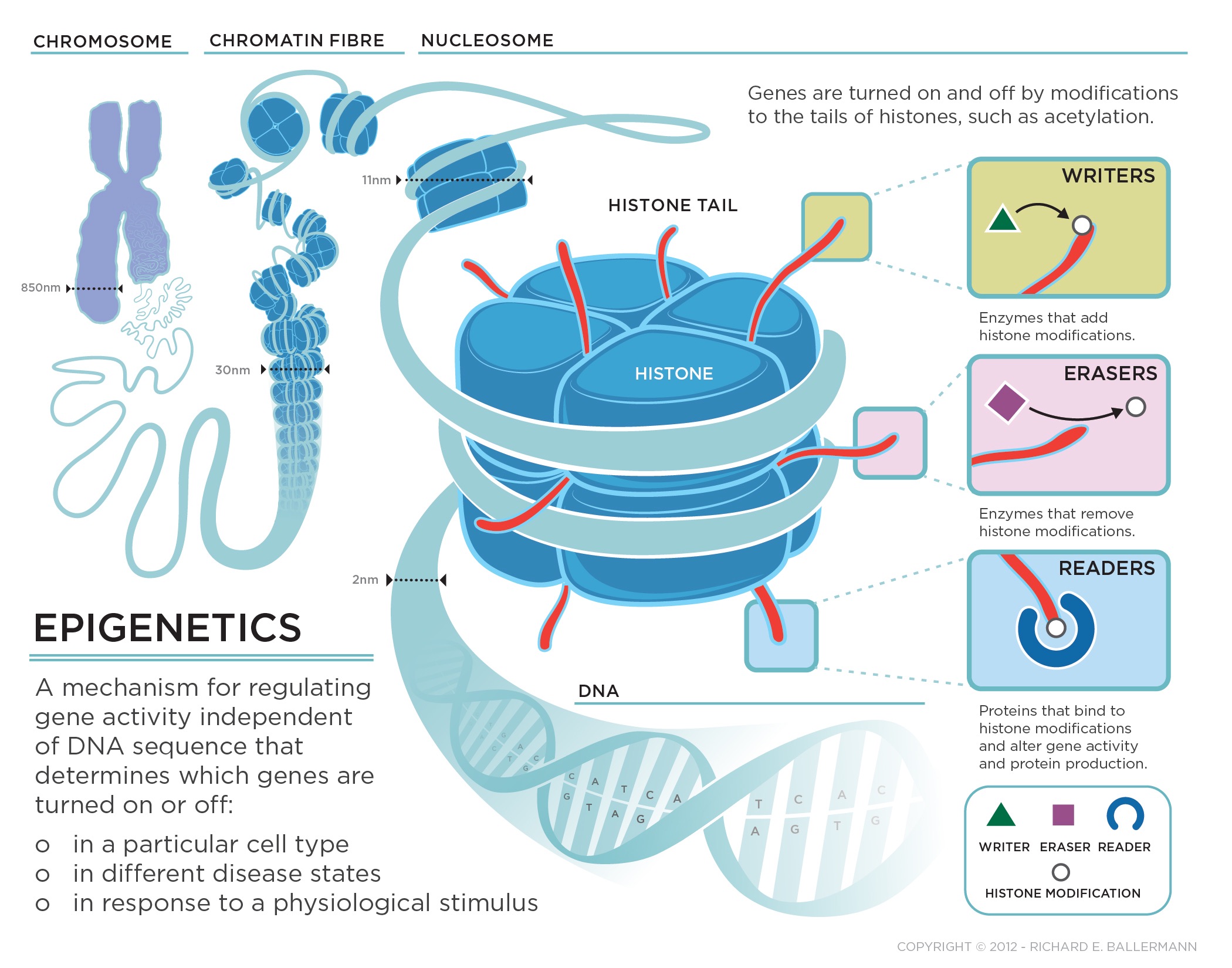What is Epigenetics?
Epigenetics is a new frontier in the search for treatments of human diseases. It refers to modifications to DNA or the proteins associated with DNA, such as histones, without changing the DNA sequence. Epigenetics determine whether a gene is on or off, or whether its activity is high or low. This pattern of modifications is different in the various cells and organs of the body and allows our cells to specialize into their distinct roles. Epigenetic modifications can also change, over time as we age, or in response to environmental and lifestyle factors. There is now substantial evidence that alterations in these patterns underlie multiple diseases, as the level of activity of a gene will – in many cases – mean the difference between healthy, normal, biological processes and unhealthy disease processes. For these reasons, epigenetics has become an exciting forefront for the discovery of new medicines. Several epigenetic therapies have been approved and are marketed, while others are in registration enabling late-stage clinical studies.
Readers, Writers & Erasers
Epigenetic modifications to the DNA, or the proteins associated with DNA, include, among others, acetylation, methylation and phosphorylation. These epigenetic “labels” are added by enzymes called “writers” and removed by enzymes called “erasers”. Other proteins, called “readers” are able to recognize the labels by binding to them and, with the help of other specialized proteins, to regulate gene activity.
Zenith focuses on a particular family of “reader” proteins: the Bromodomain and ExtraTerminal domain (BET) proteins. There are four members of this family BRD2, BRD3, BRD4 and BRDT, amongst which BRD4 has most closely been linked with the regulation disease-associated genes in areas such as cancer, autoimmune diseases, and cardiovascular diseases. By regulating disease markers at the gene expression level, upstream of conventional pharmaceuticals, BET proteins make for an important therapeutic target.

